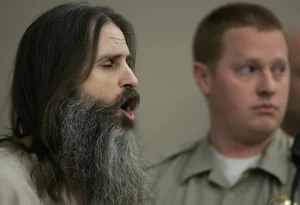When serving as an expert witness on psychological matters, is there anything that needs to be handled differently or carefully due to common misconceptions of the topic?
Yes, this is an important factor to consider because when working for the Family Court, clearly the welfare of the child is paramount but to practice ethically, we still need to consider the wellbeing of the parent who we are assessing, at a really difficult time in their lives. It takes care and attention to ensure all parties involved are advised appropriately in the interests of the child and to assist the Court, including practical guidance for other professionals such as social workers who face challenges due to limited training in complex forensic areas.
I believe that we should be as useful as possible and this often involves us going beyond our initial remit.
Whilst other experts may solely provide a report to assist the Court which ends their involvement, we believe that as psychological specialists, our remit should go beyond that to consider the wider social and environmental factors involved in a case. For example, I have attended Court at very short notice to assist a barrister in managing a highly distressed and traumatised client; I have advised social workers on how best to engage members of the gypsy/traveller and BME communities, and I have frequently taken calls from court to talk through complex placement options with legal professionals. In particular, an awareness of the social identity factors relevant to multicultural communities is key to our practice and something I am currently researching in relation to the 2017 Manchester Arena bomb. I believe that we should be as useful as possible and this often involves us going beyond our initial remit. All of my associates understand this.
What are the most important traits for an expert witness to have when handling these matters?
Integrity, sensitivity, creativity, decisiveness, good boundaries and good humour are all pre-requisites in our role.
Over time, would you say that cases and public understanding of these topics has improved?
We work in a political context, so there are limits to funding in all directions and this undoubtedly affects the work we can do, as well as other professionals. I think the public are frustrated by what they perceive as the lack of consideration and forward-thinking given to parents who are at risk of having their children removed from their care and I can share their frustrations.
Since working in the forensic and mental health field, even as a student, I have always been aware of the mismatch between what professionals know will help clients avoid a life of adversity and the reality of where the funding is prioritised.
Are there any areas that you hope will improve in the future, whether in terms of process, legislation or awareness?
Since working in the forensic and mental health field, even as a student, I have always been aware of the mismatch between what professionals know will help clients avoid a life of adversity and the reality of where the funding is prioritised. For example, early parenting and school support will reduce the later requirement for mental health and prison spaces and early years social care funding will reduce the costs placed on Family Court and fostering/adoption services. It is disappointing that those in charge of budgets are often short-sighted.
My company has developed an innovative, multi-disciplinary group programme aimed to help vulnerable parents to engage more thoroughly and effectively with the professionals assigned to work with them. This would hopefully reduce the ‘revolving door’ that we see, of parents having multiple babies removed from their care over the years. It has received great interest and support from parents and professionals alike but we cannot roll this out as there is no funding stream to pay for it.
Helen Hart BSc (Hons), MSc, CPsychol, AFBPsS, CSci
Registered Forensic Psychologist
I have worked as a Forensic Psychologist for over 20 years, originally completing my training via HM Prison Service where I worked for twelve years, mainly in High Security conditions before leaving to develop my own private practice of mental health and wellbeing associates with Hart Psychological Consulting Ltd. We offer psychological advice and guidance, both formally and less formally in a range of environments, including community-based workshops, supervision and training sessions for professionals and Expert Witness reports, as well as psychotherapy for various issues. We aim to demystify psychological services so that they are useful and accessible to the public and professionals alike.




















